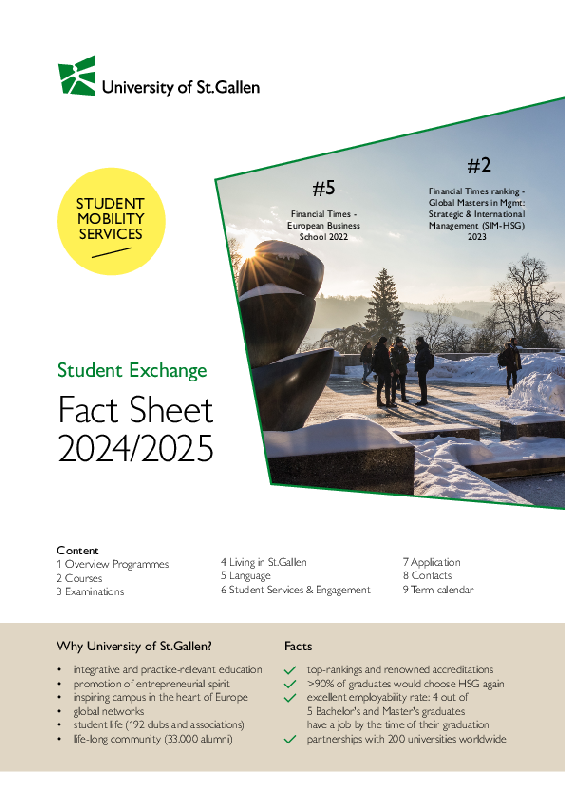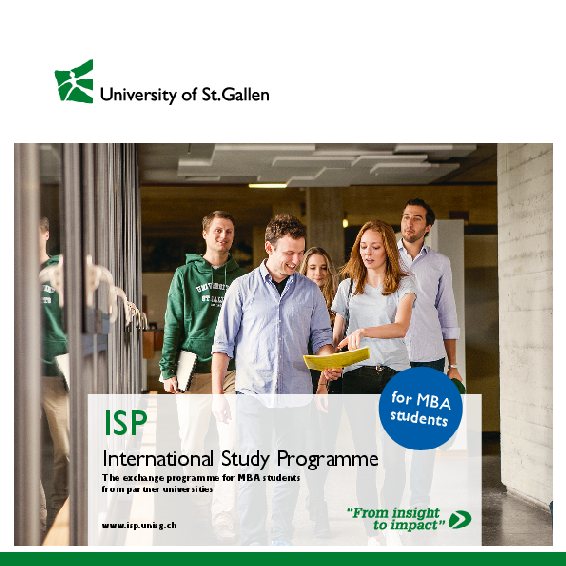The ISP is an intensive 3-month exchange programme for international MBA students from our partner universities.
Grüezi and welcome to the University of St.Gallen (HSG). We want you to feel prepared upon your arrival for your guest stay in St.Gallen and have put together all the information you need for your ISP-MBA guest stay at HSG.
About the ISP

Classes are small, teaching is interactive, and the requirements are substantial.
Our well-known and respected professors will lead you towards a profound and enduring understanding of conducting business in Europe. In addition to the core curriculum, we integrate company visits and excursions into our programme. Visits provide you with the opportunity to broaden your horizons both personally and professionally, and in some instances, you will meet leaders in these dynamic institutions. Thus, the ISP provides a learning laboratory for those who aspire to a career in a volatile, uncertain, complex, and ambiguous (VUCA) world.
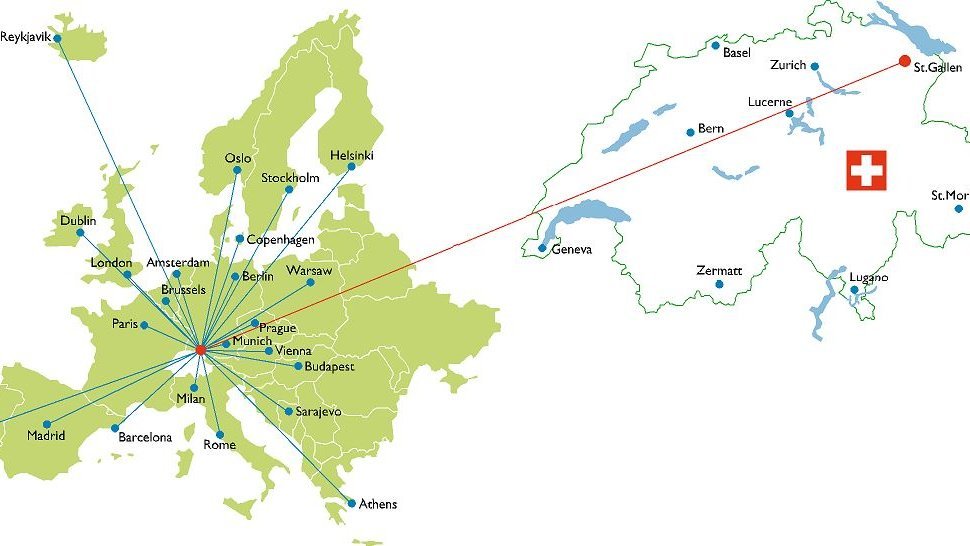
We invite you to explore continental European business and economics through this programme offered in the dynamic setting of the University of St. Gallen.
During the 3-month stay in Switzerland there is one week free of classes for individual travelling across Europe as are the weekends. The geographic position of Switzerland (and St.Gallen) in the heart of Europe allows to combine the academic experience of St.Gallen and exploring the east, west, north, and south of Europe during the free days.
ISP Courses
The ISP includes core and elective courses, giving participants a thorough understanding of business in Europe. All courses are in English and the required course material is free of charge. The ideal class size ranges from 25 to 35 students. The minimum workload is 16 ECTS whereas the maximum workload is 27 ECTS. All core courses are mandatory. You must select at least three courses of your choice of the elective courses whereas you do not have to select any of the optional courses. Please see the detailed course description for further information on the ECTS and contact hours per course.
The ISP course planning makes it possible to attend all offered ISP courses if desired. Courses do not overlap.
Find more information about core courses, elective courses and optional courses in the ISP Programme.
Overview ISP Courses (PDF) Example ISP Schedule (JPG)
ISP Company Visits
In addition to the core curriculum, we integrate company visits and excursions into our programme. Visits provide you with the opportunity to broaden your horizon both personally and professionally, and in some instances, you will meet leaders in these dynamic institutions.
Detailed impressions on the company visits are available below the table.
Company visits during the last ISP programmes
| Appenzeller Alpenbitter | Appenzell |
| BMW | Munich (DE) |
| Bühler | Uzwil |
| CERN | Geneva |
| IBM | Zurich |
| Cailler | Broc |
| International Committee of the Red Cross | Geneva |
| IWC - Internation Watch Company | Schaffhausen |
| Nestlé | Vevey |
| Maestrani | Flawil |
| Roche | Basel |
| United Nations High Commissioner for Refugees | Geneva |
| Victorinox | Ibach |
| WEF - World Economic Forum | Geneva |
| Siemens | Zug |
| Swisscom | Zurich |
The ISP company visits at a glance


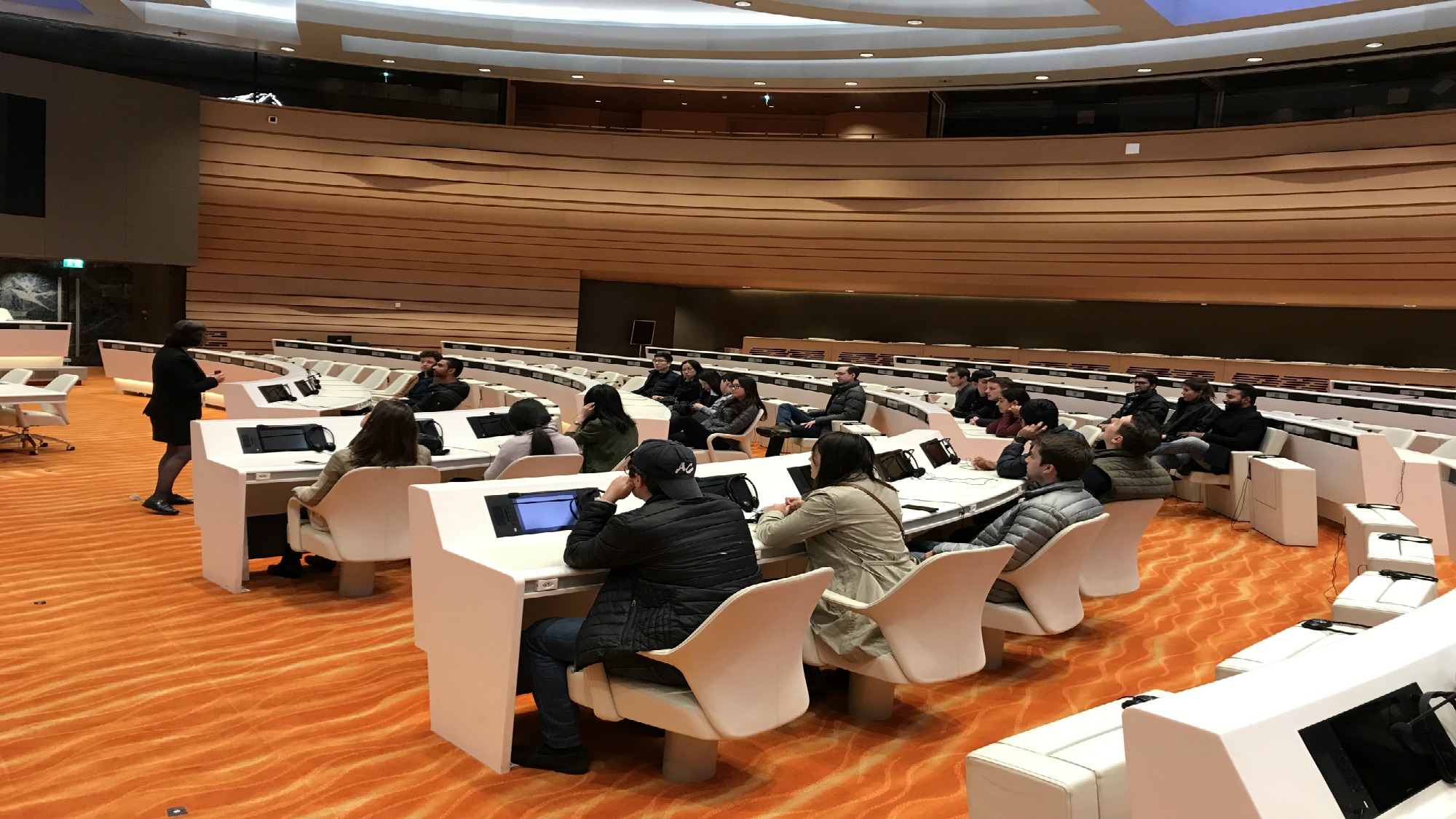
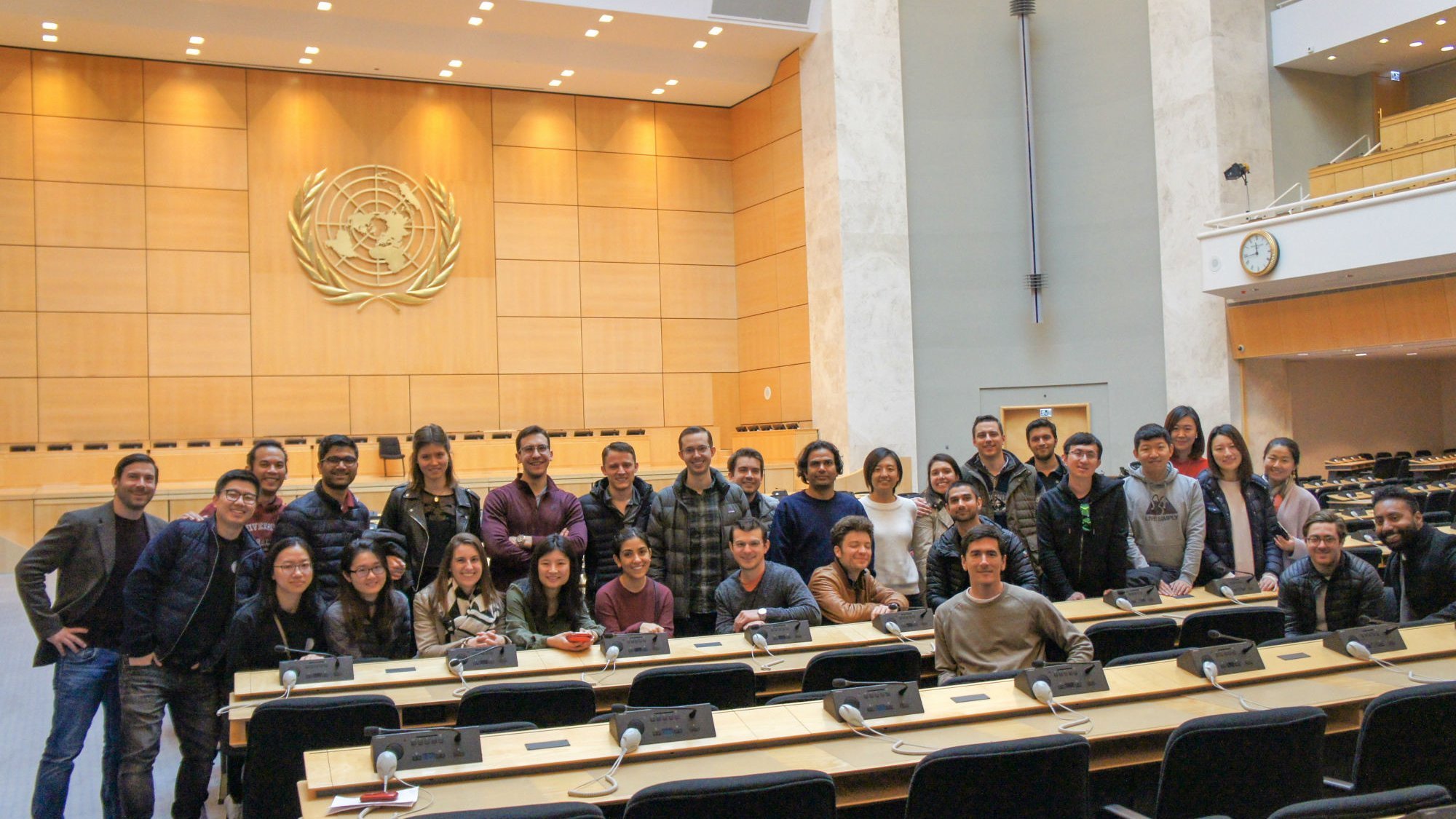
My way to the ISP
Language Requirements
All ISP courses are in English. Non-native English speakers must have minimum TOEFL score of 89 (ITB) or IELTS score 6.5. This requirement is waived for students enrolled in an English-taught MBA at the home university.
Nomination by partner university
As an MBA student at one of our partner universities, your application for an ISP guest stay at HSG needs to be processed by the International Office of your home university. Once your application has been checked by your International Office, the preliminary registration is handled by your home unversity with an electronic nomination process.
Nomination deadline for home university | |
| Autumn ISP | 15 April |
| Spring ISP | 15 September |
Application by guest student
After you have been nominated by your home university, you will receive a password and further information about the application.
Application deadline for guest students | |
| Autumn ISP | 15 May |
| Spring ISP | 30 September |
Application Procedure
The online application takes place in Mobility-Online. Once you login to your account, you will have a list of different tasks to complete. Of the various tasks, uploading personal documents of you is required. These documents are:
- Application confirmation (signed)
- Photocopy of valid passport or national identity card that you will use to enter Switzerland
- Photo* for Student Identification card (student ID)
Once you have completed the tasks, they will automatically be checked off. After you have completed the tasks and the Student Mobility Office has checked your application, your Acceptance Letter will be transmitted.

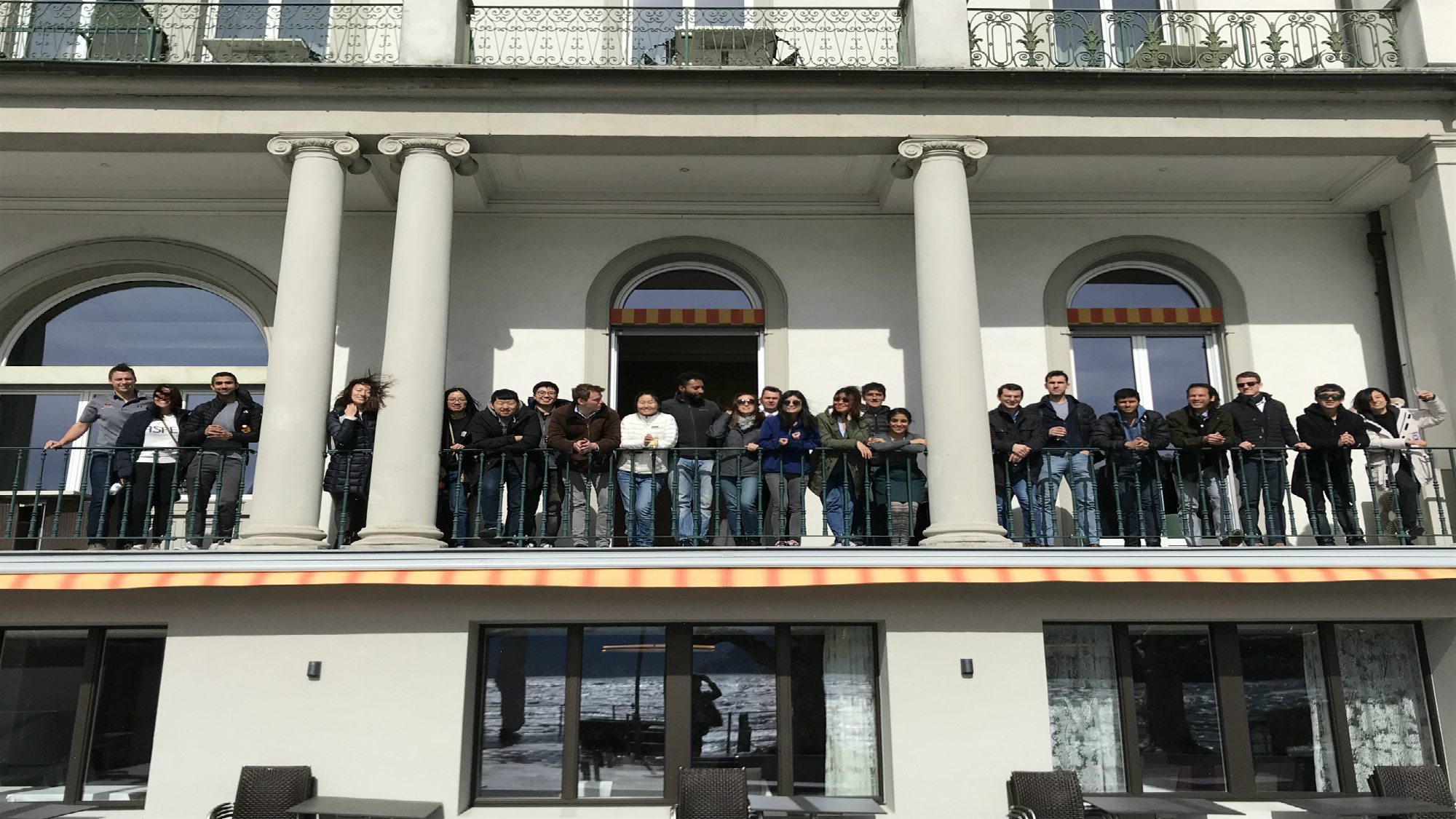
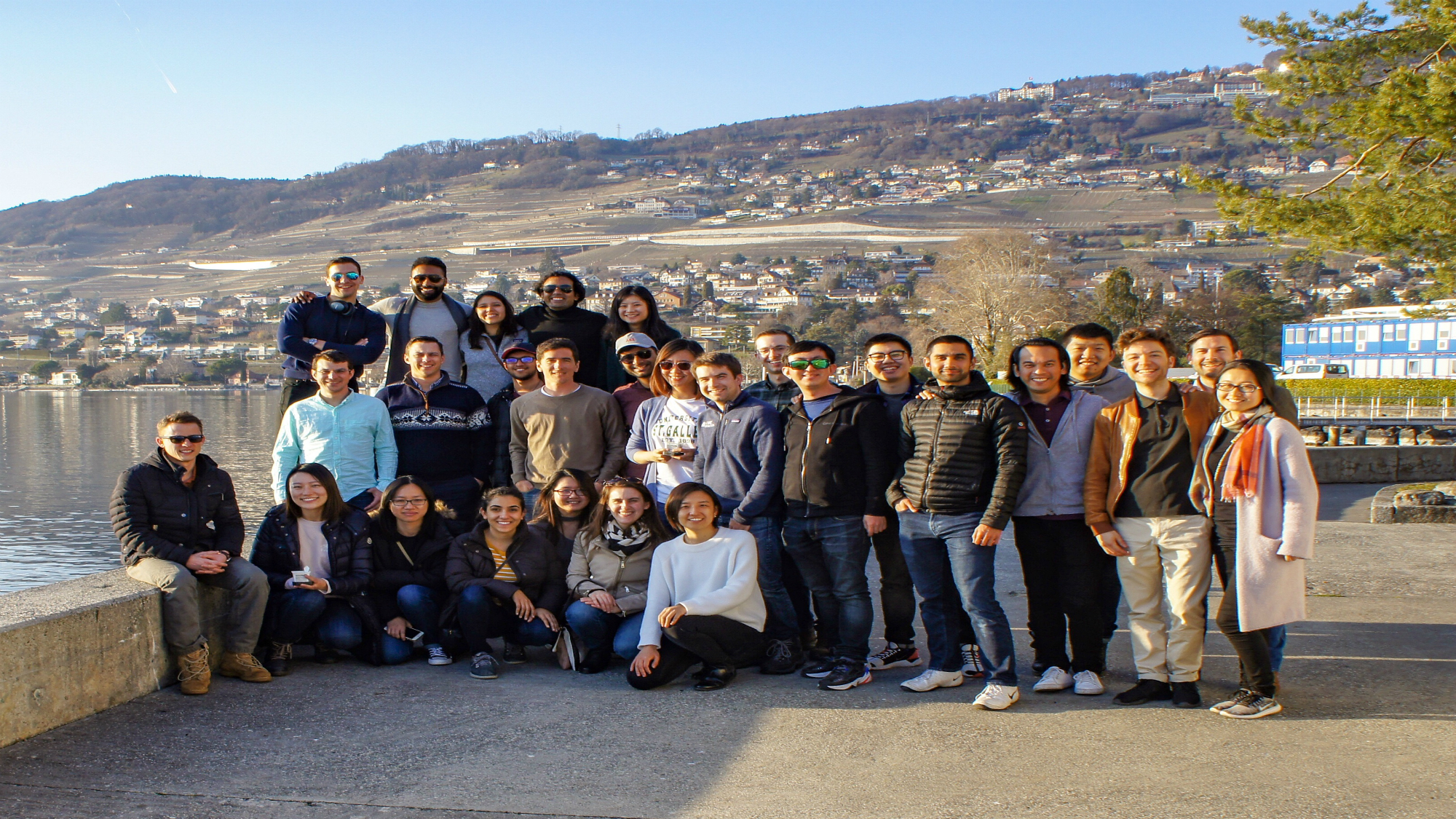
Downloads
Contact
Esther Stäheli
Programme Manager The Americas & Oceania
Student Mobility Services
Büro 58-316
Tellstrasse 2
9000 St. Gallen
Büro 58-316
Tellstrasse 2
9000 St. Gallen
Nicole Gsell
Programme Manager Asia / ECOL Virtual Exchange
Student Mobility Services
Büro 58-317
Tellstrasse 2
9000 St. Gallen
Büro 58-317
Tellstrasse 2
9000 St. Gallen
Andrea Häfner
Programme Manager Incomings Europe, Russia, Middle East & Africa | Freemover Incomings | Scholarships SEMP & ESKAS
Student Mobility Services
Tellstrasse 2
9000 St Gallen
Tellstrasse 2
9000 St Gallen

